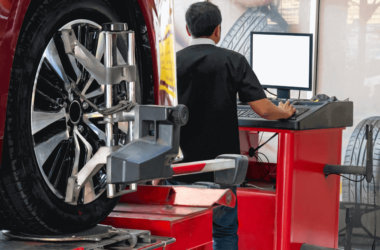Every car needs a fuel pump to get fuel to the engine rapidly. Fuel pump maintenance reduces repair costs and extends vehicle life in commercial fleets. This article discusses preventive maintenance measures fleet managers can take to increase fuel system life.
Recognizing the Significance of Fuel Pump Upkeep
The fuel pump drives fuel from the tank to the engine at the right pressure. Failure to maintain this vital element can lead to poor engine performance, fuel inefficiency, and costly breakdowns. Frequent maintenance enhances car performance and reduces catastrophic faults, allowing fleets to run uninterrupted. Fleet managers can decrease unexpected repair costs and downtime with preventative maintenance.
Putting Regular Inspections into Practice
Regular inspections can spot issues before they grow. Gasoline pumps, hoses, filters, and connectors should be inspected regularly by fleet managers. Leaks, corrosion, and misalignment can indicate wear and tear early. You may also prevent contaminants from harming the fuel pump by verifying the gasoline quality each time you refuel. For fleets in need of Auto Repair in El Cajon, CA, timely inspections ensure smooth operations. The log of these inspections helps managers make educated maintenance decisions by tracking performance over time.
Monitoring of Fuel Quality
Gasoline quality affects pump lifespan and performance. Early pump failure may be caused by obstruction, overheating, and tainted gasoline. To avoid this, buy fuel from trusted sources and test it often. To remove contaminants before the fuel reaches the pump, gasoline filtration equipment can be used. Teaching drivers how to replenish fuel tanks properly protects the gasoline system.
Regular Maintenance and Filter Replacement
Lubricate and replace fuel pump filters regularly. Pumps and injectors need clean gasoline and lubricant to work well. Fleet managers should have a strategy for replacing fuel filters every 10,000–15,000 miles or as recommended by the vehicle’s manufacturer. The maintenance program should include frequent lubrication checks to ensure all moving parts are lubricated and working. These steps save fleets money on repairs and extend fuel system life.
Training Staff and Drivers
Successful fuel pump repair requires education. Drivers and maintenance staff should be trained to recognize fuel system concerns such unusual sounds, trouble starting, and efficiency loss. Reporting these symptoms early can prevent problems from worsening. Promoting fuel-efficient driving habits like gradual acceleration and stable speeds can enhance automobile health and reduce fuel pump stress. Knowledgeable workers are needed to maintain a corporate fleet’s durability and efficiency.
Conclusion
Commercial fleets may drastically lower the probability of expensive fuel pump repairs by implementing proactive inspections, stringent fuel quality monitoring, timely maintenance, and driver education. Fleet managers may reduce repair costs, maximize operating efficiency, and improve vehicle reliability by devoting time and resources to these preventative maintenance measures. Maintaining cars in optimal condition is ensured by a comprehensive approach to fuel pump repair, which supports business goals and fosters a sustainable bottom line.







